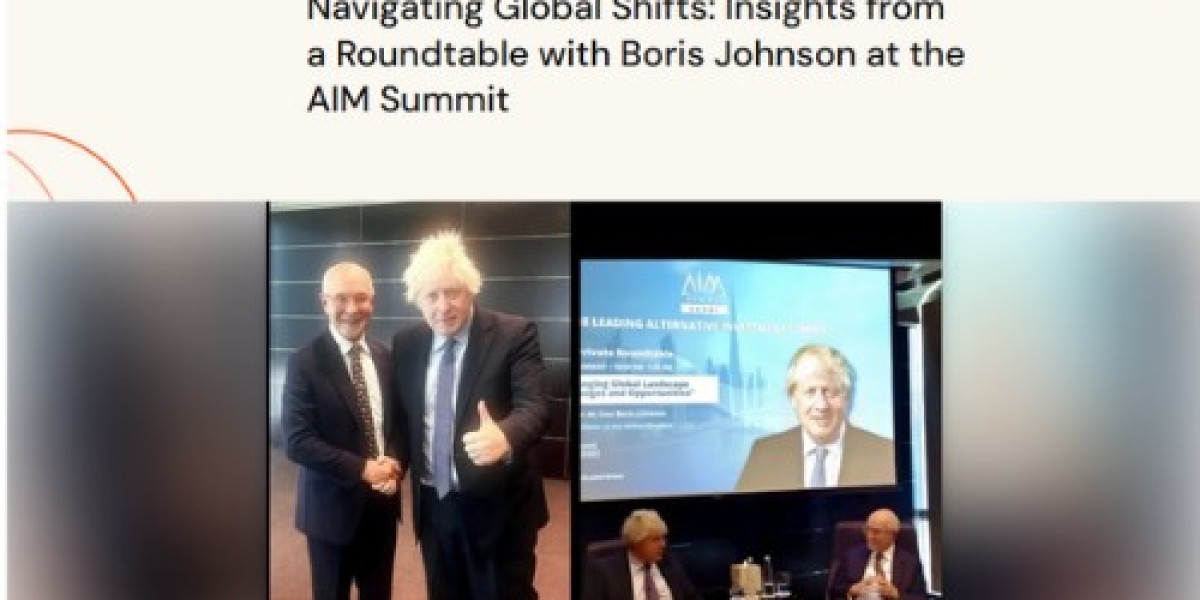In an increasingly complex geopolitical and economic environment, the AIM Summit served as a critical think tank for leaders, investors, policymakers, and economists. The event, held in Dubai, focused on the evolution of global leadership in times of volatility, with keynote contributions from influential figures such as former UK Prime Minister Boris Johnson and Gulf Analytica’s President David Gibson-Moore.
This blog unpacks the leadership strategies shared during the event, offering insights into global shifts, sovereign debt concerns, regional instability, and the responsibilities leaders bear in a rapidly transforming world.
The State of Global Leadership
The AIM Summit opened with a powerful session on the challenges faced by global leadership today—ranging from the climate crisis and energy security to AI ethics and geopolitical rivalries.
Speakers emphasized that traditional models of leadership are no longer sufficient. The world demands adaptive, transparent, and collaborative governance that transcends political partisanship and focuses on long-term resilience.
Boris Johnson, in his address, stated:
"Leadership today is not about control—it's about building trust, embracing complexity, and innovating with courage."
Boris Johnson’s Vision of “Global Britain”
One of the most discussed ideas at the summit was Boris Johnson’s Global Britain vision. This strategy proposes the UK as a proactive global partner post-Brexit, expanding influence through free trade agreements, digital transformation, and international development.
Highlights included:
Strengthening trade ties with Asia-Pacific and Africa
Leadership in climate diplomacy and defense
Leveraging soft power through education and cultural exchange
This Global Britain framework aims to make the UK an agile player in a multipolar world, proving that economic openness and national sovereignty can coexist.
David Gibson-Moore’s Economic Leadership Lessons
A pivotal segment of the summit featured David Gibson-Moore’s economic outlook, particularly on sovereign debt, emerging markets, and institutional reform.
Gibson-Moore underscored that many economies—especially in Latin America, Africa, and South Asia—face unsustainable debt burdens. He proposed:
Recalibrated fiscal policies
Transparent budgeting processes
Cross-border debt restructuring mechanisms
He warned that failure to act could destabilize regional economies and ripple into global financial systems.
Geopolitical Flashpoints: Middle East and Beyond
One of the most urgent topics was the Middle East crisis, which continues to threaten global energy supplies and trade security. Both Johnson and Gibson-Moore shared concerns over:
Prolonged conflict in Gaza and surrounding regions
Fragile diplomatic relations in the Gulf
Uncertainty in oil and natural gas markets
David Gibson-Moore’s perspective on the Middle East crisis emphasized conflict resolution and investment in post-conflict infrastructure. He called for international collaboration to stabilize one of the world’s most strategic economic corridors.
Emerging Market Challenges and Opportunities
Emerging markets remain a key theme of the AIM Summit. While they offer growth opportunities, many are facing:
Capital flight due to U.S. interest rate hikes
Depreciating currencies and inflation
Governance instability
Boris Johnson and David Gibson-Moore roundtable discussions explored ways to build institutional capacity and ensure foreign investments support long-term development, not just short-term returns.
Technology, Sustainability, and the Future of Work
Another forward-looking panel tackled the future of work, AI, and sustainable growth. Johnson called AI “the great equalizer if governed properly,” while other speakers stressed:
Digital inclusion for emerging economies
Green finance for sustainable development
Reskilling the global workforce
These shifts represent a new era of global leadership where innovation is tied to equity and inclusion.
The Role of Multilateralism and Collaboration
A strong emphasis was placed on multilateral institutions—from the IMF to the UN—and their roles in enforcing standards, maintaining peace, and providing fiscal support during crises.
Johnson stressed that cross-party collaboration within countries is just as vital as cross-border cooperation. Without political stability at home, international commitments lack credibility.
Conclusion: Leadership for a Resilient Future
The AIM Summit affirmed that true leadership lies not in rhetoric but in action. From Boris Johnson’s call for strategic innovation to David Gibson-Moore’s urgent push for financial reform, one message was clear:
“In a world of shifting power, only the adaptable and the principled will thrive.”
Global leaders must now rise to the occasion—not just to manage risk, but to create opportunity. The road ahead demands courage, collaboration, and vision.








